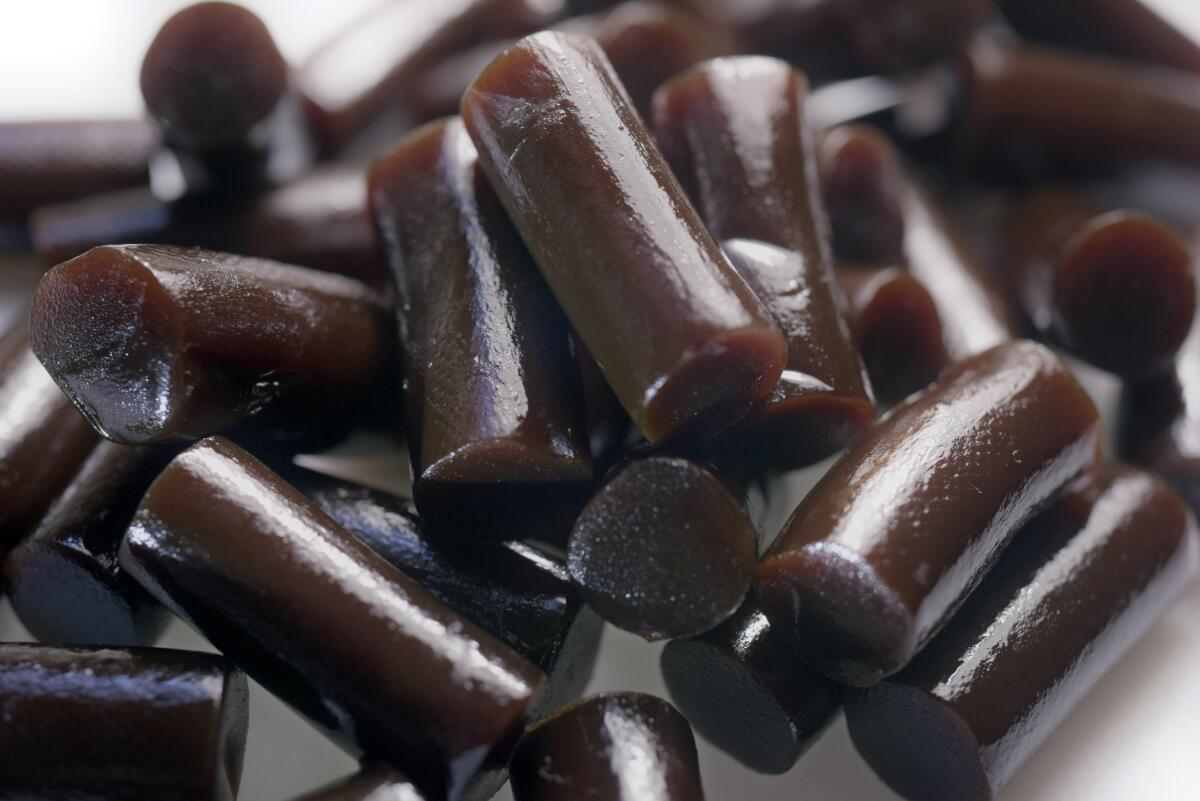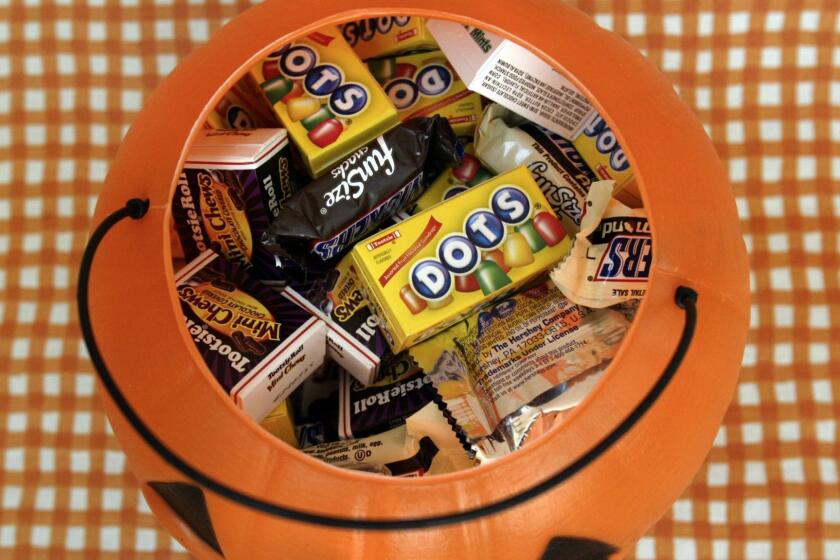Too much candy: Man dies from eating bags of black licorice

- Share via
A Massachusetts construction worker’s love of black licorice wound up costing him his life.
Eating a bag and a half every day for a few weeks threw his nutrients out of whack and caused the 54-year-old man’s heart to stop, doctors reported Wednesday.
“Even a small amount of licorice you eat can increase your blood pressure a little bit,” said Dr. Neel Butala, a cardiologist at Massachusetts General Hospital who described the case in the New England Journal of Medicine.
The problem is glycyrrhizic acid, which is found in black licorice and in many other foods and dietary supplements containing licorice root extract. It can cause dangerously low potassium and imbalances in other minerals called electrolytes.
Eating as little as 2 ounces of black licorice a day for two weeks could cause a heart rhythm problem, especially for people over 40, the U.S. Food and Drug Administration warns.
“It’s more than licorice sticks. It could be jelly beans, licorice teas, a lot of things over the counter,” said Dr. Robert Eckel, a University of Colorado cardiologist and former president of the American Heart Assn. “Even some beers, like Belgian beers, have this compound in it.”
If you’ve inhaled so many “fun size” Halloween candies that you feel like you could die, scientists have some good news: That is extremely unlikely.
The death was clearly an extreme case. The man had switched from red, fruit-flavored twists to the black licorice version of the candy a few weeks before his death last year. He collapsed while having lunch at a fast-food restaurant.
Doctors found he had dangerously low potassium, which led to heart rhythm and other problems. Emergency responders did CPR and he revived but died the next day.
The FDA permits up to 3.1% of a food’s content to have glycyrrhizic acid, but many candies and other licorice products don’t reveal how much of it is contained per ounce, Butala said. Doctors reported the case to the FDA in order to raise awareness of the risk.
Jeff Beckman, a spokesman for the Hershey Company, which makes the popular Twizzlers licorice twists, said in an email that “all of our products are safe to eat and formulated in full compliance with FDA regulations,” and that all foods, including candy, “should be enjoyed in moderation.”




